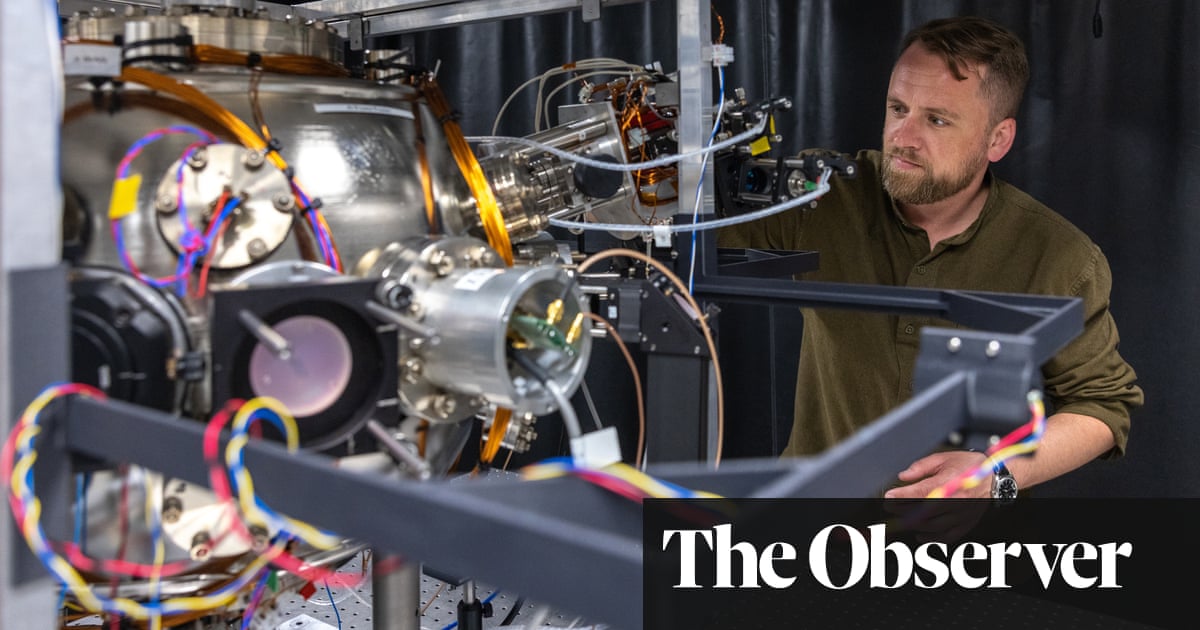This is the best summary I could come up with:
They include a stainless steel vacuum chamber, a few billion atoms of rubidium and an array of lasers that are used to cool his equipment to a temperature just above absolute zero.
While not the average kit you would expect to find being dragged into carriages on the District Line, this is the gear that Cotter – who works at Imperial College London’s Centre for Cold Matter – uses on his underground travels.
But GNSS devices are vulnerable to bad weather and jamming, and do not work underwater or underground, and their signals are often blocked by tall buildings and other obstructions.
“Then you don’t have to worry about signals being lost or blocked by high-rise flats,” said Dr Aisha Kaushik, another member of the Imperial Centre for Cold Matter team.
In the devices – which have been carried on board London underground track-testing trains and not on commuter services – rubidium is inserted into the vacuum chamber that lies at the machine’s heart.
The system has been found to work well in a stable laboratory but needs to be tested in more extreme conditions if it is to be turned into a transportable, standalone device that can be used in remote or complex locations, added Cotter.
The original article contains 739 words, the summary contains 207 words. Saved 72%. I’m a bot and I’m open source!

